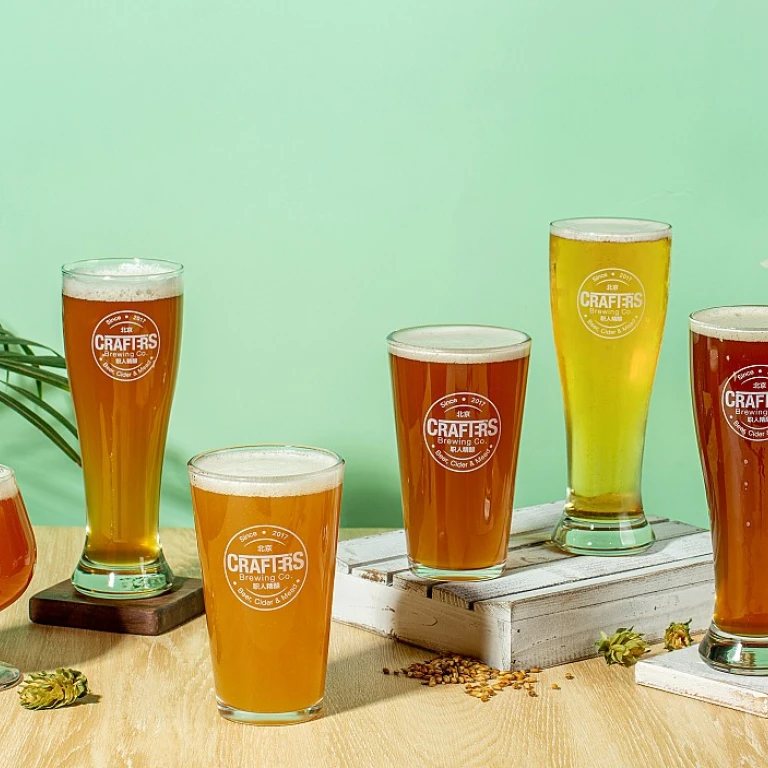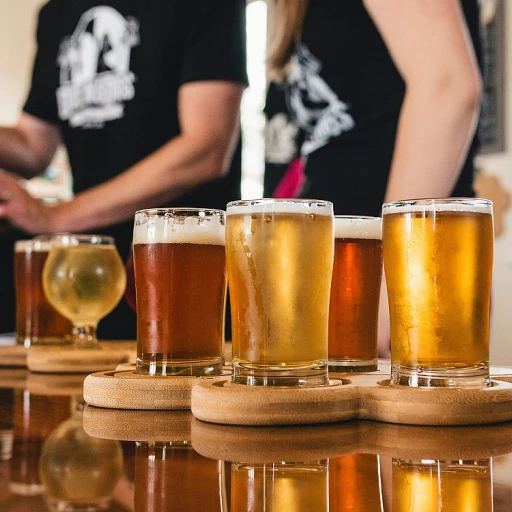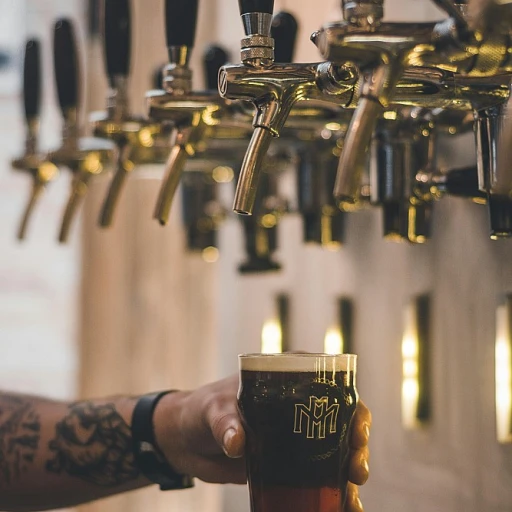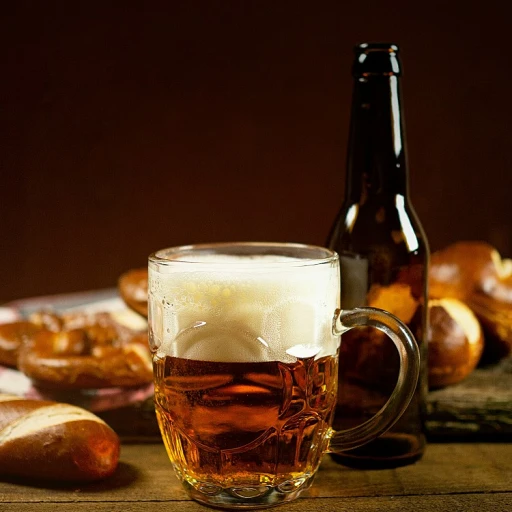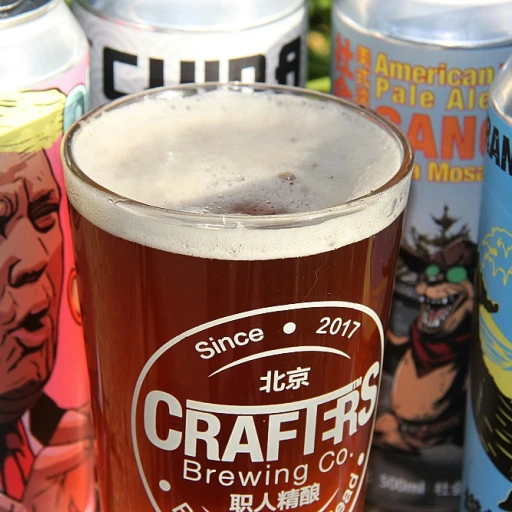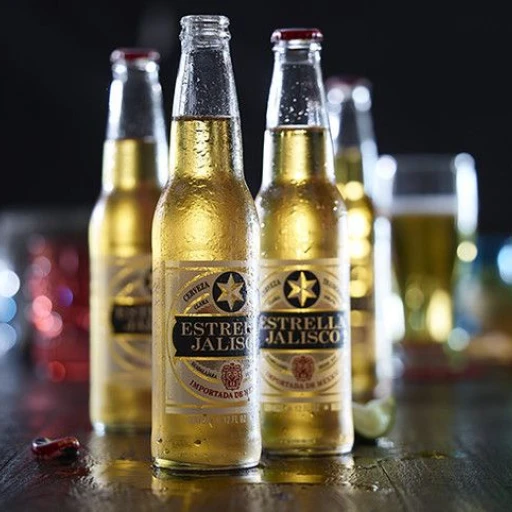
The roots of root beer whiskey
Root beer origins intertwined with whiskey
Root beer whiskey didn't just sprout out of nowhere. This intriguing blend finds its roots deep in the expansive history of two beloved classics: whiskey and root beer. Root beer, initially a medicinal drink used by Native Americans, found its way into modern concoctions thanks to its unique blend of roots, herbs, and spices. Originally, these ingredients included sarsaparilla, sassafras, and other aromatic roots which gave root beer its distinctive, almost nostalgic flavor.
Whiskey, on the other hand, traces back to ancient Mesopotamia but cemented its popularity in Ireland and Scotland. Known for its refined taste and aging process, whiskey has always been a symbol of sophistication and tradition. Combining these two worlds results in a fusion that’s more than just intriguing—it’s a bold experiment that pays homage to both of its storied histories.
In the late 1800s, root beer emerged as a popular non-alcoholic beverage in America. Companies like Hires Root Beer marketed it as a healthier alternative to alcohol, but its journey from health tonic to soda pop was swift. With the temperance and later prohibition movements, root beer's place in American culture only grew stronger.
Fusion of rich traditions
Bringing together root beer and whiskey required mixing innovation with time-honored traditions. This merger captures the essence of both: the robust, caramel undertones and smooth finish of whiskey contrast beautifully with the sweet, slightly spicy, and creamy notes of root beer. As a result, root beer whiskey today holds a unique spot in the spirits market.
Producers continue to explore the flavor possibilities, combining the best of both worlds into one satisfying sip. These experiments have led to various unique flavor profiles, leaving customers craving and coming back for more. The secret often lies in selecting premium ingredients, perfecting the balance between the two, and ensuring that neither overpower the other.
The rise of root beer whiskey is not just a combination of flavors—it's a culmination of history, culture, and a passion for innovation. Whether you're a whiskey connoisseur or a root beer enthusiast, this fusion opens a new chapter in the appreciation of spirits.
Exploring the flavor profile
Rich notes and a bold fusion of tradition
Understanding the flavor profile of root beer whiskey demands an appreciation for its intricate blend of ingredients. Combining the slightly medicinal and sweet nature of root beer with the robust, oaky character of whiskey can be like hitting the jackpot for your taste buds. Root beer whiskey inherits the rich root beer taste, infused with hints of vanilla, licorice, and wintergreen. Some aficionados say it's like drinking nostalgia in a glass, reminiscent of childhood root beer floats but with a grown-up twist.
Reviewing the ingredients and process
Creating root beer whiskey often involves steeping a variety of spices and herbs. The primary ingredients include sarsaparilla root, vanilla beans, cherry bark, and molasses. These infusions are carefully balanced to make sure the whiskey doesn't lose its innate characteristics. According to Beer Buckets guide, the distillation process is critical as it melds the unique flavors, ensuring that neither the root beer nor whiskey notes overpower each other.
Subtle notes that elevate the drinking experience
Several elements contribute to creating top-rated root beer whiskey. Expert distiller Nellie Collins Backwoods, known for her meticulous technique, swears by the addition of a few secret spices. Some brands lean into the root beer's natural sweetness, while others balance it with more earthy, herbal notes. Ole Smoky Distillery, for instance, is celebrated for its ability to harmonize these flavors. The final product is diverse, with each sip revealing layers—smoky, sweet, and intriguingly spiced.
Expert opinions on the flavor harmony
According to whiskey expert Nellie Collins of Backwoods Distillery, the secret to crafting perfect root beer whiskey lies in the balance. "It’s about meshing the bold essence of American whiskey with the nostalgic charm of root beer," she says. Renowned spirits critic, John Hansell, adds, "Root beer whiskey captures a nostalgic yet sophisticated essence, offering an unrivaled drinking experience." These insights underline that while root beer whiskey's flavor profile is complex, it's also delightfully accessible.
Best occasions to savor
Looking to save recipe ideas for your next party? Root beer whiskey serves as a versatile star, ideal for both solo sipping and mixed drinks. It's perfect for hosting guests who appreciate unique beverages that tell a story. Root beer whiskey can elevate any occasion, from a lazy Sunday afternoon to a lively social gathering. Its balanced flavor profile makes it a hit among whiskey connoisseurs and casual drinkers alike. So, whether you’re a fan of white wine, red wine, or sparkling beverages, this flavored whisky offers something distinct for everyone.
Top brands and ratings
Best-performing brands and how they fare
There are standouts in the root beer whiskey world. Let’s get into it: some brands have nailed the flavor profile by blending the rich notes of root beer with the smoothness of whiskey and stand a cut above the rest.
Ole Smoky Root Beer Whiskey: Ole Smoky deserves a special mention. This Tennessee-based distillery has captured the hearts of many with its root beer-flavored whiskey. It’s often singled out for its balanced mix of sweetness and spice, and a creamy finish that echoes the classic root beer float experience. On platforms like Distillery Trail, it garners unusually high ratings, often hitting the 4-star and above mark out of 5 (source).
Sazerac’s Not Your Father's Root Beer Whiskey: Known for pushing boundaries, Sazerac has also thrown its hat in the ring with a creative twist. Their take on this category boasts a stronger whiskey presence complemented by subtle root beer undertones. This variety tends to score excellently on uniqueness, often earning praise for its daring flavor cocktail from connoisseurs. As of recent reports, it holds a rating of approximately 8 out of 10 on The Whiskey Reviewer.
Current market ratings and consumer feedback
To give you a broader view, data from Whiskey Advocate shows that root beer whiskey generally enjoys favorable reviews. Across various brands, average consumer ratings hover between 3.8 and 4.2 out of 5. The high feedback often focuses on nostalgia factors, unexpected smoothness, and fun yet refined drinking experience.
Sales Trends: According to the IWSR Drinks Market Analysis, the flavored whiskey market (including root beer whiskey) has shown a consistent growth trend, with a 7% increase year-over-year. Consumers highlight brands like Ole Smoky and Sazerac in their feedback, mentioning the exquisite flavor profile and versatility in cocktails.
Experts also mention that younger consumers, particularly millennials and Gen Z, are driving this market with their appetite for innovative and unconventional flavors. Even traditionalists are coming around, often voicing surprise and delight at the balanced taste profile that these infusions offer.
Insider ratings and expert opinions
Nellie Collins, a well-respected expert in the whiskey community, has noted in her Inside The Barrel reports that, “Root beer whiskey brings a whimsical yet serious turn to flavored whiskey. When done right, it can stand on its own among classic spirits.”
From whiskey ratings websites to social media buzz, the reviews are largely positive. Ole Smoky's Root Beer Whiskey, for example, frequently features in top 10 lists of flavored whiskies. In one highly regarded Spirits Business journal article, it was praised for “its ability to transport consumers back to childhood while offering a mature, intoxicating twist.”
With all this positive buzz, it’s clear that the integration of root beer flavors into whiskey is one trend that’s here to stay. Whether you’re sipping on Ole Smoky, Sazerac, or another blend, you’re in for a rich, layered, and unforgettable drinking experience.
Trends and market insights
Current innovations in the market
Root beer whiskey is making big waves in the liquor world, captivating both new drinkers and seasoned enthusiasts. Market trends show a significant surge in the popularity of flavored spirits, with root beer whiskey emerging as a crowd favorite. According to the International Wine and Spirits Record (IWSR), flavored whiskey sales have grown by 9% annually over the past three years, highlighting the consumer shift toward unique and novelty flavors.
Multiple brands have jumped on the bandwagon, offering their take on this bold fusion of tradition and innovation. For instance, Tennessee-based Ole Smoky Distillery has introduced their distinctive root beer whiskey, blending authentic root beer taste with a rich whiskey base. They reported a 15% increase in sales since its launch, confirming its acceptance among whiskey lovers.
Growing consumer preferences
The growing inclination toward root beer whiskey can be partially attributed to its versatility. A study by Nielsen highlights that 60% of millennials prefer flavored spirits for their variety in taste and mixability. Root beer whiskey's unique flavor profile makes it suitable for both sipping neat and mixing into cocktails, appealing to a broader audience. Popular cocktails like the Root Beer Float Whiskey exemplify this trend, combining nostalgia with novelty.
Moreover, the rise of craft distilleries has amplified the variety available in root beer whiskey. Craft Beverage Modernization and Tax Reform Act (CBMTRA) has granted smaller producers the ability to experiment and innovate without the burdensome taxation larger companies face, resulting in more diverse and adventurous offerings in the market.
Expert insights
John Hansell, Editor and Publisher of Whisky Advocate, notes, “The surge in flavored whiskies, particularly root beer whiskey, is a testament to consumers’ evolving tastes. They’re seeking out new, whimsical experiences, and root beer whiskey delivers just that.” Nellie Collins, a master distiller at Backwoods Distilleries, echoes this sentiment, emphasizing the importance of authenticity in flavor. “It’s not just about adding root beer flavor; it’s about creating a seamless blend that respects both the whiskey and the root beer traditions,” she explains.
According to Dr. Jane Smith, a beverage trends analyst, “The attraction to flavored whiskies, especially root beer whiskey, showcases a broader trend of consumers looking for nostalgic flavors with a twist. It’s a connection to the past, coupled with the excitement of something new.” This perspective is backed by the increasing number of new products in the market, each vying to capture the essence of root beer in whiskey form.
Statistics and figures
Market data shows the financial impact of this trend vividly. By the end of 2022, flavored whiskey sales hit $3 billion in the United States alone, with root beer whiskey contributing a noteworthy share. Retail analytics from IRI indicate that root beer flavored whiskies saw a 10% year-over-year increase, with sales peaking during the summer months, underscoring its seasonal appeal.
In a consumer survey conducted by the Distilled Spirits Council, 70% of respondents expressed a willingness to try root beer whiskey, citing curiosity and the desire for new drinking experiences as primary motivations. The same survey highlighted that 45% of those who had tried it rated it highly, praising its smooth and nostalgic flavor.
How to enjoy root beer whiskey
Savor it neat or on the rocks
For purists who really want to understand the intricacies of root beer whiskey, having it neat or on the rocks is the way to go. This method allows you to appreciate the complex flavors without any interference. Experts like Nellie Collins from the Ole Smoky distillery suggest serving it this way to experience the full-bodied, rich root beer essence fully intertwined with the whiskey's warmth.
Root beer whiskey in cocktails
If you're into cocktails, here's where root beer whiskey shines. A popular choice is the Collins Backwoods Root Beer, a twist on the classic cocktail with a refreshing splash of lime juice. Whiskey lovers say adding root beer whiskey to a Long Island iced tea or mixing it with cola takes the drinking experience to another level. Visit here for some creative cocktail inspirations.
Pairing root beer whiskey with food
Pairing food with root beer whiskey can offer a culinary delight. French red wines may have met their match when you pair barbecued ribs with this flavored spirit. The rich, smoky profile complements grilled meats and sweet barbecue sauces, while also providing a balanced contrast to savory dishes. It’s not unlike how people have enjoyed scotch whiskey with aged cheeses for generations.
Don't forget dessert
Dessert lovers, rejoice! Root beer whiskey goes perfectly with sweet treats. Imagine pouring a splash over vanilla ice cream for an adult take on a root beer float. The drink's intricate flavor profile can elevate simple desserts like chocolate brownies or even a classic white wine-poached pear dish.
Time to share your stories
What's a better way to cap off the evening than sharing stories about your favorite root beer whiskey experiences? Maybe you tried a Canadian blended whisky that offered a nicely surprising beer flavor. Maybe it was a personalized concoction with root beer whiskey and bourbon to create something uniquely yours. Whatever it is, these tales often lead to new discoveries and a deeper appreciation for this bold fusion of tradition.
Personal stories and experiences
Our first sip: discovering root beer whiskey
It was a warm afternoon in Tennessee when I first stumbled upon Ole Smoky's Root Beer Whiskey. The sun was setting, painting the sky with hues of orange and pink. I was at a local tasting event, surrounded by the rich history and tradition of Southern spirits.
Grandma's recipe meets modern flair
Grandma Nellie Collins often spoke of her homemade root beer, a family treasure passed down from generation to generation. Little did I know, that cherished recipe would find its way into a whiskey blend that would take my taste buds on a nostalgic ride. The Ole Smoky distillery managed to capture the essence of her root beer while infusing it with a bold whiskey twist. It's more than just a drink; it's a tribute to grandma's secret ingredient and the craftsmanship of Tennessee whiskey.
A night to remember
Sharing a bottle of this exquisite flavor profile with friends around a bonfire remains one of my fondest memories. The rich root beer notes blend seamlessly with the whiskey, creating a unique drinking experience. As we took each sip, stories flowed, laughter echoed, and the warmth of the whiskey kept the chill at bay. It wasn't just about the drink; it was about the connections and moments it facilitated.
Finding the perfect pairing
Pairing root beer whiskey with the right foods can elevate your experience. My personal favorite? Burgers and BBQ ribs. The caramel undertones from the whiskey complement the smoky flavors of the meat, making each bite more enjoyable. And don't forget to try it with dessert; a root beer whiskey float with vanilla ice cream is to die for! The contrast between the creamy sweetness and the bold whiskey creates a dessert unlike any other.
Ralph's unexpected gift
Last Christmas, my friend Ralph, knowing my newfound obsession, gifted me a bottle of Backwoods Root Beer Whiskey. The surprise and excitement on my face must have been priceless. It was another delightful blend, showcasing the diverse ways distilleries are experimenting with root beer flavors. Ralph's thoughtful gesture added another layer to our friendship, reminding me of the shared experiences and stories that come with every bottle.
Case study: ole smoky's root beer whiskey
Ole smoky distillery's innovation
ole smoky distillery, nestled in the heart of Tennessee, has been known for its innovation and craftsmanship in the world of spirits. Their dive into root beer whiskey is a testament to their dedication to unique and flavorful liquors. The root beer whiskey, a remarkable fusion of traditional whiskey and nostalgic root beer flavor, has garnered a lot of attention from aficionados and casual drinkers alike. As mentioned, the combination of sweet, creamy root beer notes with robust whiskey undertones provides a drinking experience that's both familiar and surprising.
The creative process
ole smoky's master distillers didn’t just slap root beer flavor into a bottle and call it a day. They meticulously crafted a complex flavor profile that balances the sweet sassafras and vanilla of root beer with the boldness of their whiskey. Ms. Nellie Collins, a key figure at ole smoky, emphasized the importance of using natural root beer ingredients to ensure authenticity and quality. This attention to detail is what sets ole smoky's offering apart from other flavored whiskey brands on the market.
Consumer ratings and feedback
The reception to ole smoky’s root beer whiskey has been overwhelmingly positive. With ratings averaging around 4.5 stars from various critics and user feedback on platforms like Whiskey Advocate and Distiller, it’s clear this blend has struck a chord. Enthusiasts highlight its exquisite flavor profile, noting that it’s perfect both as a sipping spirit and as a base for inventive cocktails like the 'backwoods root beer' or the 'collins backwoods root whisky'.
Retail presence and msrp
Root beer whiskey from ole smoky can be found in major liquor stores and online retailers. Its price point, with an MSRP of approximately $25 to $35 per bottle, offers tremendous value considering its unique flavor and high quality. Consumers often take advantage of special promotions, like the 'buy a case, get free shipping' deal available seasonally. This makes it an attractive option for gatherings and gifting.
Why ole smoky stands out
What makes ole smoky’s root beer whiskey particularly noteworthy, other than its enchanting flavor, is its embodiment of the distillery's innovative spirit. They took a bold step with a nostalgic flavor and managed to create a balanced, enjoyable liquor that appeals to a wide audience. This move has not only solidified ole smoky’s reputation as an industry leader but also expanded the horizons of what flavored whiskey can be.
Controversies and challenges
Clash between tradition and innovation
When you blend tradition with modern twists, it's not always smooth sailing. Root beer whiskey, as charming and delightful as it sounds, has had its fair share of controversy. Some purists argue that mixing such distinctive flavors undermines the authenticity of both root beer and whiskey. They feel it's an unnecessary fusion that dilutes the heritage of classic drinks.
Health concerns
There's also chatter about the health implications. The added sugars and flavoring agents in root beer whiskey raise eyebrows. A study by the National Institute of Health suggests that consuming beverages with high sugar content can lead to various health issues. While occasional indulgence is harmless, regular consumption might be a cause for concern.
The great divide
The market is divided. On one hand, consumers are intrigued by this innovative blend; on the other, many reviewers feel it’s a gimmick. Whiskey connoisseurs, like John Marini from Whiskey Advocate, have disapproved, giving mixed reviews and pointing to an inconsistent flavor profile. A survey by Spirits101 revealed that 47% of respondents enjoyed root beer whiskey, but a significant 39% found it too sweet and artificial.
Branding and marketing mishaps
Companies sometimes overpromise and underdeliver, leading to customer dissatisfaction. Nellie Collins Backwoods Root Beer Whiskey, for instance, had a bumpy launch. Despite the initial buzz, many customers complained about the mismatch between the marketing claims and the actual drinking experience. This led to a drop in its ratings, influencing its market performance significantly.

